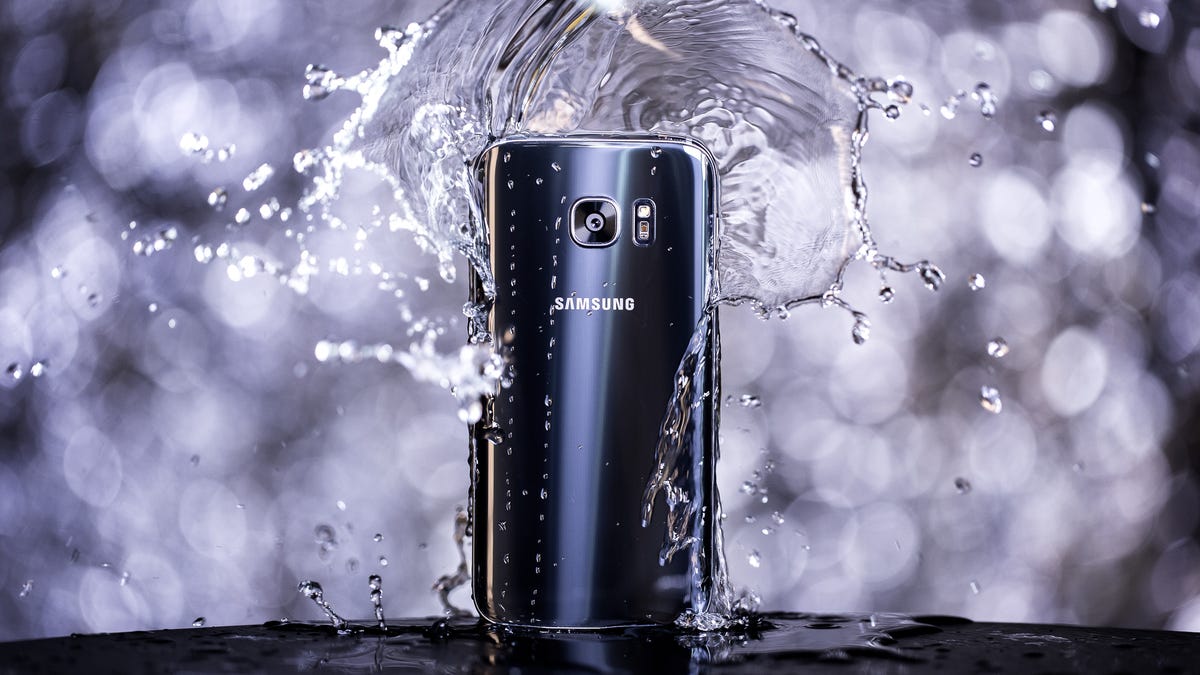3 reasons this Samsung Galaxy S8 exclusive isn't necessarily a slam dunk
Being the first out with Qualcomm's new Snapdragon 835 chip is a real win. But there are plenty of ifs, ands and buts.

Samsung 's upcoming Galaxy S8 will launch with something that competing phones won't have: the latest Qualcomm powerhouse chip inside.
Samsung's foundry made the chip, which is likely why it gets first dibs. And in theory, that tiny processor could bring the Galaxy S8 a huge advantage.
The Snapdragon 835 is rumored to bring its smaller, faster, battery-saving, megapixel boosting powers exclusively to the Galaxy S8, at least at first. After the S8 goes on sale, supposedly in mid-April, Qualcomm is said to give other phonemakers the go-ahead to bring the 835 on board.
But until then, the slew of phones that will launch at next month's Mobile World Congress show -- the world's biggest mobile tech showcase -- have no choice but to stick with last season's chipsets, the Snapdragon 820 or 821. The 821, for example, is 35 percent larger than the 835, its graphics lag by 25 percent and it offers a 30 percent slower recharge speed -- according to the specs -- than the 835-equipped Samsung Galaxy S8.
So on paper, Samsung has the clear advantage over LG's upcoming G6, HTC's U Ultra, BlackBerry's "Mercury" and whatever Sony and Huawei might launch. But in real life, how much better the Galaxy S8 will be than any other phone has a little to do with the processor and a lot to do with how Samsung uses the chip. For instance, just because the 835 can support a single 32-megapixel camera doesn't mean it will.
Here's why Samsung's advantage may not be quite as stark as it may seem.
1. Chips aren't always as good as they seem
A processor can be an all-star in theory and a dud in real life. Qualcomm had problems when its 810 in 2015 ran into overheating issues. Samsung even went with its own Exynos chip in the Galaxy S6 bound for all its territories instead of using Qualcomm's 810, and it yielded some pretty impressive benchmarking speeds. (Samsung typically ships its Exynos chip in some devices and Qualcomm in others; expect the same for the Galaxy S8).
2. Samsung may not use every feature
(Which means that the real-world gap between phone performance may not be all that wide)
The Snapdragon 835 has a ton of new and enhanced features, but they might not all make it into every phone that uses that chip. Samsung would have to consciously build the S8 to take advantage of them all. And while it's likely that Samsung will use a lot of those features (see below), the phone might not use facial recognition , Gigabit LTE or 16-megapixel dual cameras .
Snapdragon 835 supports:
- Smaller chip size for a slimmer phone or larger battery (Integrated Wi-Fi means it takes up less space)
- Four cores with 2.45GHz threshold and four with a 1.9GHz threshold
- 2.5 more hours of battery use than the Snapdragon 820/1
- Supports single 32-megapixel or 16-megapixel dual camera mount (using Spectra 180 camera ISP technology)
- QuickCharge 4.0 (20 percent faster charge than QuickCharge 3.0)
- Graphics are 25 percent faster than the Snapdragon 821
- 4K Ultra HD premium video (HDR10)
- Better VR experience (improved graphics and 60 times more colors than 820 chip; Google Daydream support)
- Facial recognition and iris scanning in addition to fingerprint
- 802.11ad for gigabit LTE connectivity
- Promises not to slow down over time
- Bluetooth 5
- 3D audio
Samsung may very well decide that to keep the phone price in check it will use 12-megapixel cameras as it did with the S7 (but with enhanced processing). Or it might want to modulate how it charges the S8 to curb the chances of it overheating like the Galaxy Note 7. We just don't know yet.
3. You might not notice much difference anyway
The gulf between premium phones these days is pretty narrow, which is why phonemakers try so hard to gain an edge. One phone might run slightly faster than another or take slightly better low-light photos. But at the end of the day, most of them are going to give you a high level of satisfaction. If you're comparing the S8 to other 2017 phones -- or even many of last year's models -- the difference may not be night and day.
The Galaxy S8 might also wind up with better audio and smoother VR graphics. However, if you listen to most of your music through wireless speakers instead of a headset, or don't care about virtual reality, then those perks won't matter to you as much as price along with how much you like the phone's design.

